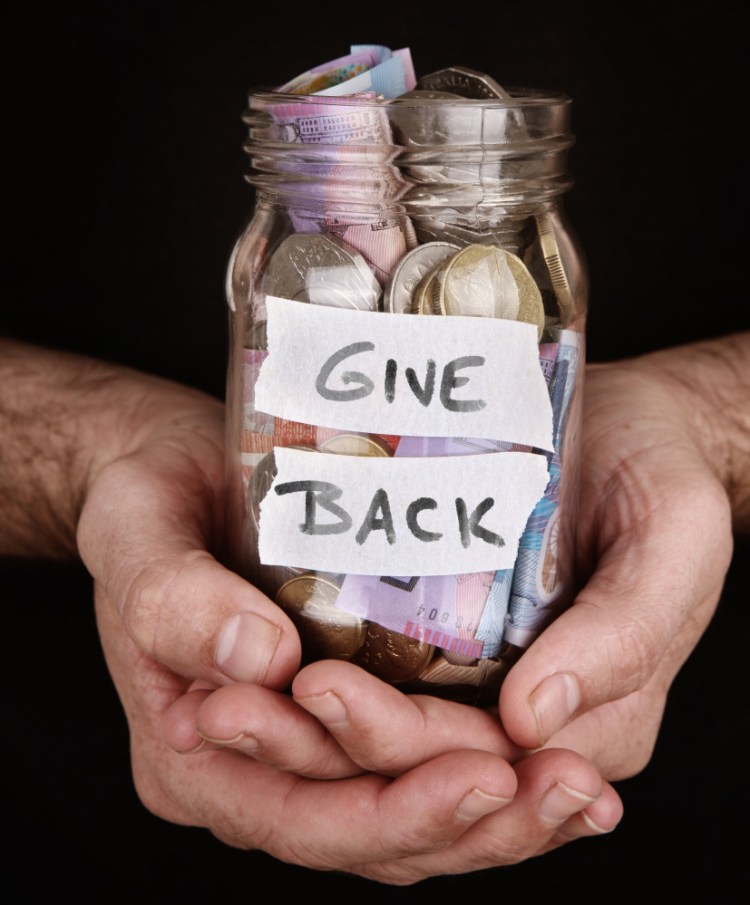Three years ago, as I watched my son perform martial arts, he said something that was forever etched into my head and heart. Stepping onto the mat, Aidan bowed to his instructor and, in his sweet 9-year-old voice, said, “I’m gonna do the best I can today.” Goose bumps. An hour later, Aidan bowed again, saying, “I did the best I could today!” More goose bumps.
Nearly everyone I share this story with pledges to bookend their day with this simple sentiment. Because each of our definitions of doing our best varies, I’d like to suggest the following for 2018: Let’s do our best by helping one another do the best we can. We all have something to give, and together we can make a world of change.
SMALL GIFTS ADD UP
Serving in nonprofit leadership roles for 17 years, I have witnessed humanity at its best – people joining together in powerful ways. At our core, humans innately need and desire connections. These connections are often strongest when built on empathy, defined as “ability to understand and share the feelings of another.”
Here in the U.S. we see countless examples of empathy. A hurricane hits and Americans are quick to help neighbors near and far. Charitable giving continues to set new records, increasing nearly every year since 1976, according to Giving USA 2017.
But while the wealthiest give the most in sheer dollars, according to social scientist Arthur C. Brooks, low-income employed Americans give the highest portion of their earnings. These data suggest we have an abundance of empathy – while also highlighting the power of small.
It’s easy to lose sight of the power of small when growth in mega-donations – private gifts over $100 million – grab headlines, including John Paulson’s $400 million gift to Harvard and Phil Knight’s $400 million gift to Stanford.
These mega-gifts reminded me of Mark Swann’s January 2015 Portland Press Herald op-ed, “Maine Voices: Wealthy ‘angels’ needed to help end suffering in Portland.” In it, the Preble Street executive director acknowledged the importance of all gifts, but cited a missing link: “large donations that could transform our city.” Swann suggested chronic homelessness could be resolved for $40 million (four $10 million gifts). Now three years later, where are those angels? We still need mega-gifts, to be sure, and we also need to increase the number of everyday change makers.
To do so, we must address issues of access – and we need to emphasize the power of small.
Nonprofits are increasingly recognizing opportunities to engage the masses, and ordinary citizens. The Case Foundation has labeled this phenomenon democratizing philanthropy: “the notion that giving – of your time, talent or treasure – isn’t something just for an elite class of individuals, but for all individuals.”
Yet, even with technological advances and growing focus on making giving more accessible, how are we reaching folks most marginalized? How do we eliminate all barriers to giving, even those perceived, by bringing opportunities directly to them?
STARTING AT HOME
This dilemma is even more pressing in Maine, which lags behind the rest of the country when calculating giving as a percentage of income, ranking 49th overall, according to Philanthropy Roundtable USA.
I don’t believe Maine’s low ranking indicates an empathy deficit. This past year in launching World of Change, a Maine nonprofit seeking to collect the $10 billion in loose change all around us to make social change, I spent countless hours in classrooms, at summer camps and with businesses engaging people of all ages. I can attest firsthand that almost everyone gets excited and is spurred to action when given empathy-activating opportunities.
That connection, fulfillment and sense of purpose we all get from giving – shouldn’t every child and human have an opportunity to experience the same?
We all play a role, but it starts in the home. Children whose parents talk to them about giving are 20 percent more likely to give than children whose parents do not, according to an Indiana University Lilly Family School of Philanthropy study. That finding holds regardless of the child’s sex, age, race or family income.
In a rural state like Maine, how do we increase access to purpose-filled experiences? How do we create more hurricanes of small acts, connecting people and using “the power of small” to move Maine up the generosity ladder?
Let’s prime the pump! At World of Change we’ll continue using spare change to lower barriers and get kids and adults excited about making change. Meanwhile, if there’s an “angel” out there, how about leveraging your mega-investment to empower and inspire more everyday citizens?
Who’s with me in 2018?
Send questions/comments to the editors.



Comments are no longer available on this story